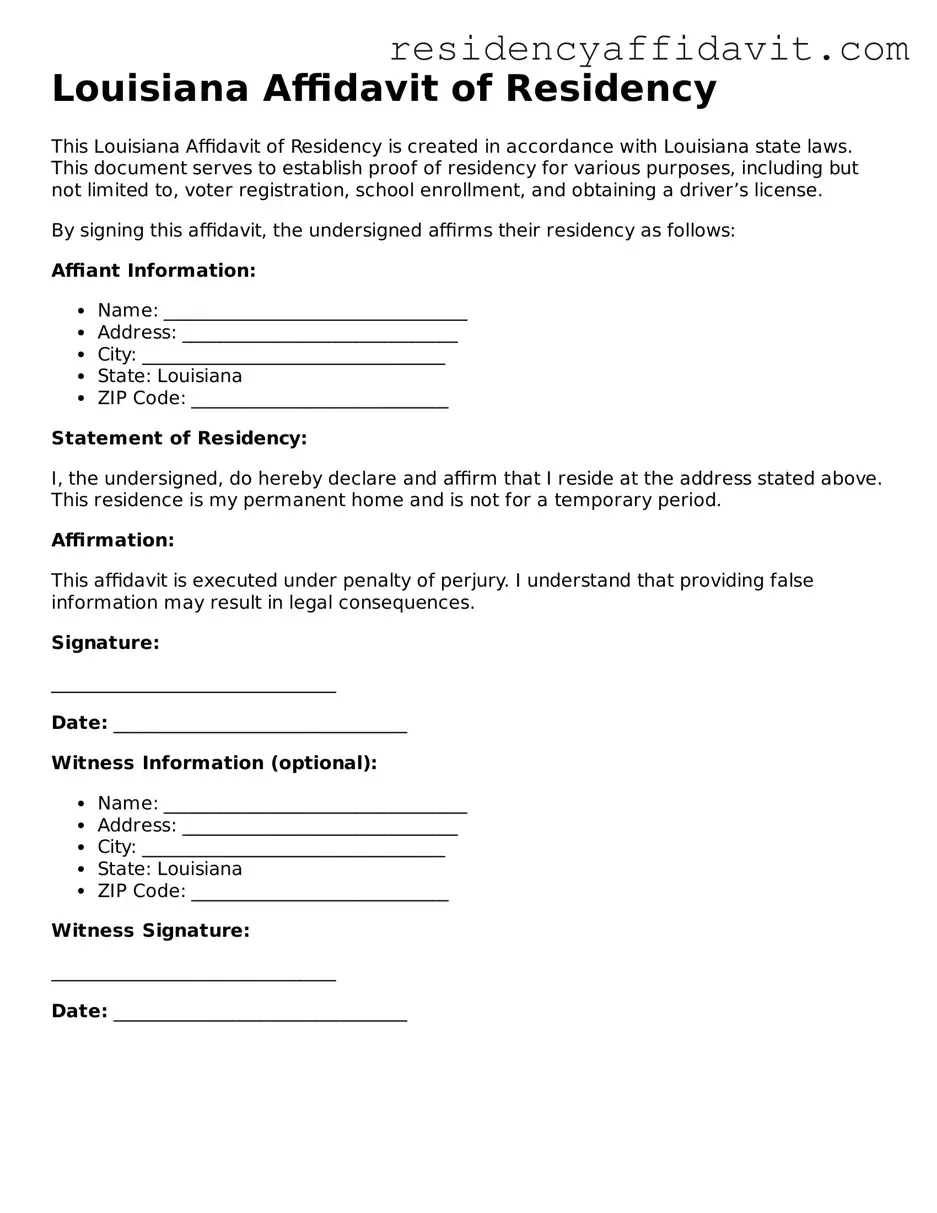Attorney-Approved Affidavit of Residency Document for Louisiana
The Louisiana Affidavit of Residency form is a legal document that verifies an individual’s residency status in the state of Louisiana. This form is often used for various purposes, including enrolling children in school or applying for certain benefits. Understanding its importance and the process for completing it can help ensure that residents meet their legal obligations effectively.
Get My Affidavit of Residency Online

Attorney-Approved Affidavit of Residency Document for Louisiana
Get My Affidavit of Residency Online
Your form progress is not saved
Edit and save Affidavit of Residency online, ready to download.
Get My Affidavit of Residency Online
or
➤ Affidavit of Residency PDF Form
